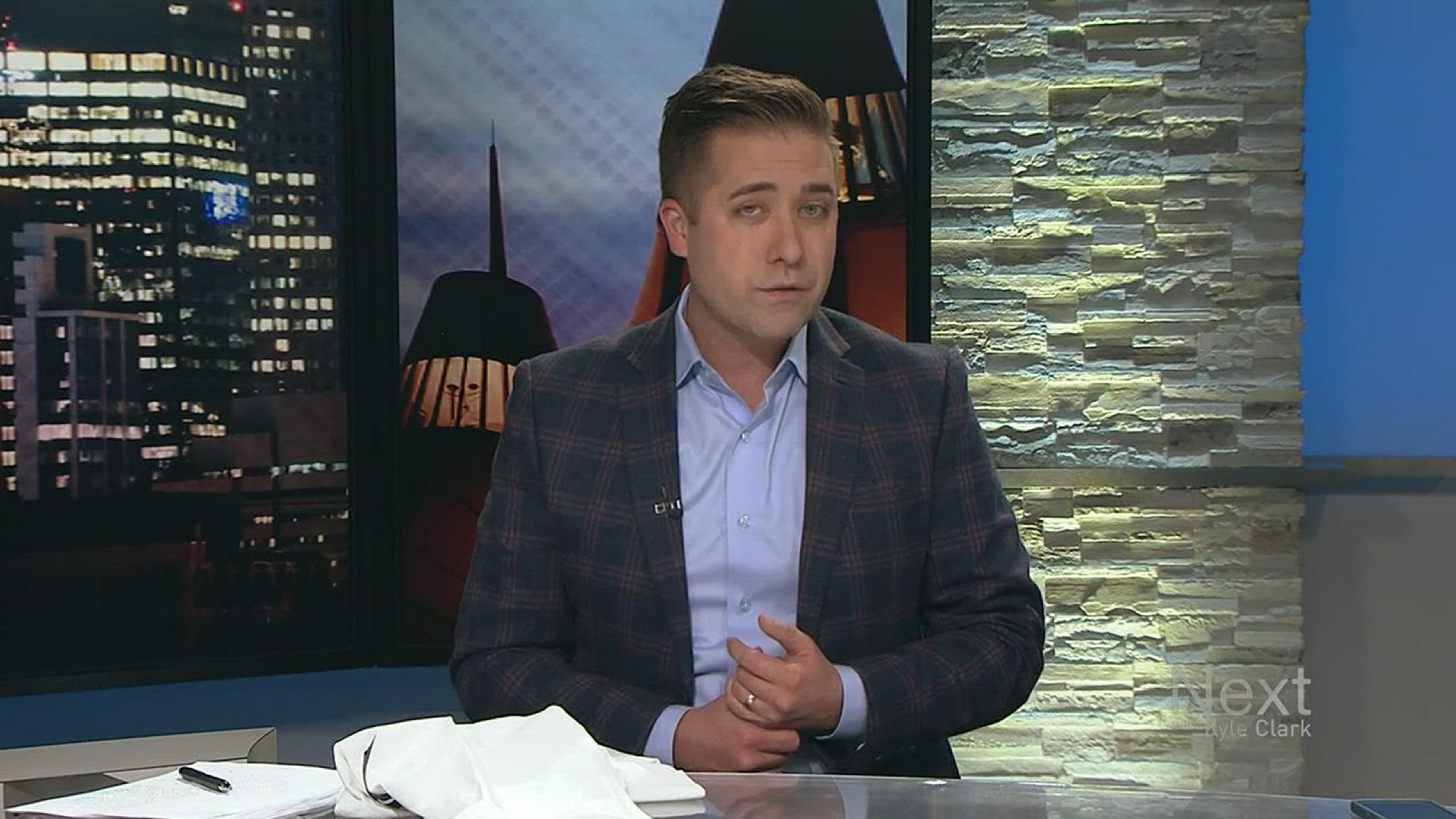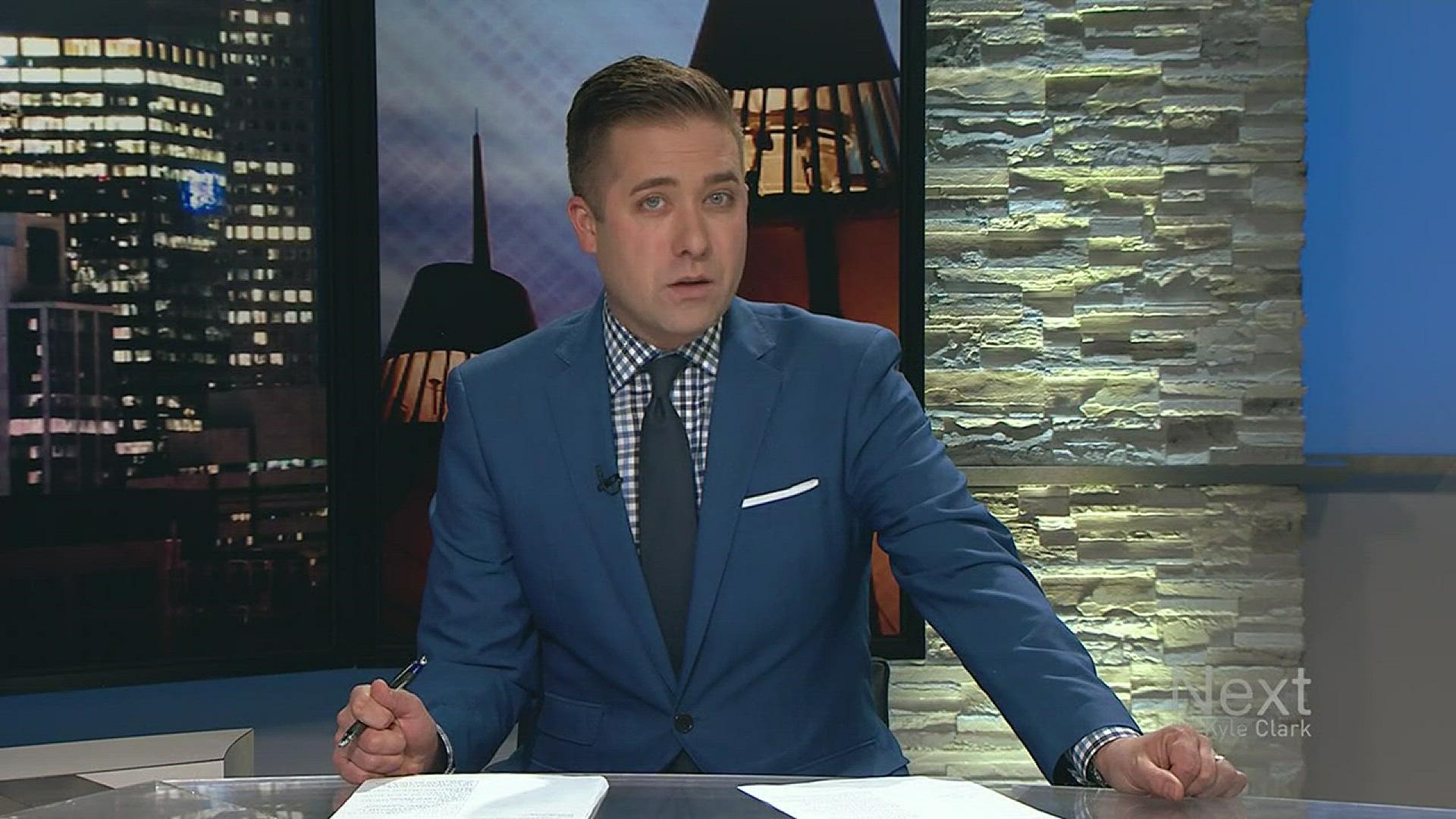After Denver City Council approved the ordinance to create a supervised injection site, the only thing standing in its way is a needed change in state law. 9NEWS has covered various aspects of the proposed ordinance, including a breakdown of how Vancouver has navigated the safe injection sites and what Denver envisions its supervised sites to look like.
Another part of the proposed ordinance, according to its champion City Council member Albus Brooks, are the resources that are to be provided to people so they can test their drugs for fentanyl - a drug mentioned in the news regularly due to its lethality.
Fentanyl killed 81 people in Colorado in 2017 - double the number killed by the synthetic opioid in 2015, according to the Colorado Department of Public Health and Environment.
Brooks told 9NEWS people would be allowed to stay at the supervised injection site even if their drugs test positive for fentanyl and explained that the thought process behind it is so people who are using these drugs do so in a place with help close by.
To understand the threat posed by fentanyl, 9NEWS reached out to several law enforcement agencies at both national and local levels to learn about the dangers facing Coloradans who use drugs.
National and international efforts to stop the flow of fentanyl
The Drug Enforcement Administration said fentanyl can legally be used to help with severe pain, like those suffering from cancer or patients who'd just gotten out of surgery. However, the DEA said fentanyl is being illegally manufactured and mixed with other drugs like heroin and cocaine.
"People need to understand," said Timothy Scott, an acting assistant special agent in Colorado. "It's in the street and it's in the pills."
Scott told 9NEWS that major production of black market fentanyl is coming out of China. He said some is also produced in Mexico. As for how it's getting to the United States, Scott said drug dealers and even users are buying it on what's called the "Dark Web," a largely hidden layer of the Internet where people can buy things like drugs anonymously.
"You don't even know who you are buying from," Scott explained. "You don't know where it is coming from. You don't know how it's being made."
The drug has been tracked coming through U.S. ports and airports, Scott added.
Paul Shade, a spokesperson for the U.S. Postal Inspection Service, said inspectors are catching packages like envelopes and boxes with fentanyl hidden inside and addressed to people in the U.S. He said sometimes people sometimes even use fake addresses. The Postal Inspection Service is the law enforcement arm of the U.S. Postal Service. In an email, Shade said there are teams in place across the U.S. that investigate potential fentanyl shipments both domestically and internationally.
If postal inspectors do catch a package with fentanyl inside, they then begin an investigation to try and identify who is sending the package as well as the recipient.
The local plight of fentanyl
Lisa Gawenus with Denver Health told 9NEWS that people overdosing on fentanyl show up at the hospital. She said it's more powerful than morphine and the drug is killing people.
"Very small amounts can lead to fatal overdose," she said.
The Rocky Mountain High Intensity Drug Trafficking Area program said they began noticing fentanyl popping up more and more in Colorado around three years ago. In a group conversation over the phone with Chelsey Clark, the chief of staff, Grady Harlow, an analyst, and Tom Gorman, the director of the program, the three agreed they've seen fentanyl laced into other drugs besides heroin, including cocaine and meth.
The group also mentioned they know of smaller fentanyl manufacturing productions busted in the U.S. - like in Wyoming and Utah. They added that people using may not be aware fentanyl is in the drugs they're using and compared using sometimes to Russian roulette.
While fentanyl is dangerous, its impact doesn't seem as severe as it does in other parts of the country. According to Scott with the DEA, the west coast, east coast and midwest areas are the epicenter of the problem. The DEA, the staffers at the Rocky Mountain Drug Trafficking Area program and the Denver Police Department agree different areas of the country have their drugs of choice.
Though Colorado has a heroin problem, Scott said the state tends to favor meth. The state health department said 139 died with meth in their systems in 2015. That number grew to 196 in 2016 and then ballooned up to 293 in 2017.
According to Scott, there's also a chance that fentanyl deaths are underreported. He said not all coroner's may test for fentanyl during autopsies. The Denver Police Department admitted that not all drug seizures are tested for fentanyl either. As an example, the department said, if officers seize cocaine, they may not test it for other drugs.
"I don't think you are seeing the impact of fentanyl that you see in other places," Scott concluded. "But that doesn't mean it's not coming and not getting worse."
Watch the latest from Next with Kyle Clark:


